7. The Queen
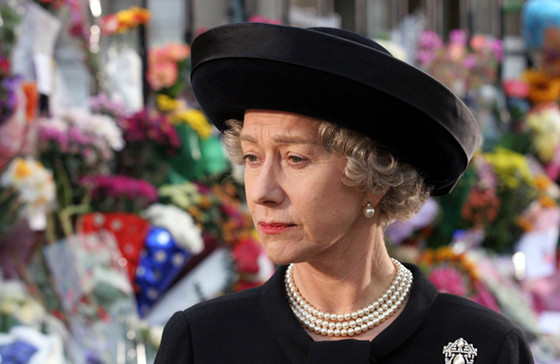
Directed by Stephen Frears and starring Helen Mirren as Queen Elizabeth II, the film follows the royal reaction to the death of Diana, Princess of Wales. One of the best-reviewed films of the year, with distinct praise for the spot-on portrayal of the Queen, and the screenplay from Peter Morgan, “The Queen” was a huge success. Mirren was even praised by the Queen herself, and was invited to Buckingham Palace.
In the film, the Royal Family regards Diana’s death as a private affair and thus not to be treated as an official royal death. Prime Minister Tony Blair and Diana’s ex-husband, Prince Charles, wanted the affair to be public and open to the British public.
The film’s release coincided with the increased approval of the monarchy and a downturn in fortune for Blair, who resigned several months later. The film was a huge success, placing in many Top 10 critics lists for 2006. These include number one placements in both The Hollywood Reporter and the Seattle Post-Intelligencer.
“The Queen” was nominated for six Academy Awards, including Best Picture and Best Director. It won one Academy Award, Best Actress for Helen Mirren for her performance of a lifetime. Mirren won at least 29 major awards for her performance. Anchored by Mirren’s performance, “The Queen” is one of the best films of 2006.
6. Volver
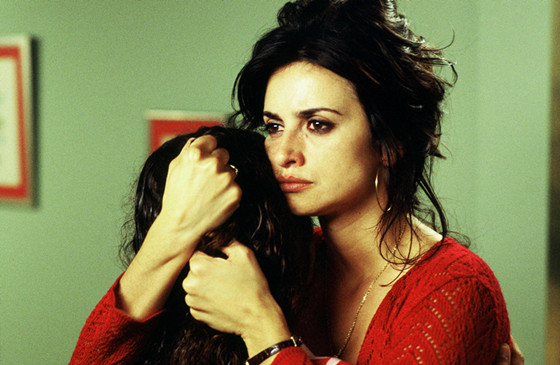
“Volver”, meaning “to go back” in Spanish, is another great piece of cinema from writer/director Pedro Almodóvar. The ensemble cast is headed by Penelope Cruz and features Carmen Maura, Lola Dueñas, Blanca Portillo, Yohana Cobo and Chus Lampreave.
“Volver” revolves around an eccentric family of women from a wind-swept region south of Madrid, Cruz plays Raimunda, a working-class woman forced to go to great lengths to protect her 14-year-old daughter, Paula.
To top off the family crisis, her mother Irene comes back from the dead to tie up loose ends. “Volver” addresses themes of sexual abuse, loneliness, and death, and it draws inspiration from Italian neorealism and filmmakers like Fellini, Visconti and Pier Paolo Pasolini.
“Volver” competed at the 2006 Cannes Film Festival, where it won two awards for Best Actress, (which was shared the six leading women in the film) and Best Screenplay. Penélope Cruz was nominated for an Academy Award for Best Actress, making her the first Spanish woman ever to be nominated in that category. She received the bulk of the acclaim for the film, but the screenplay, storytelling, and direction all received praise.
“Volver” made its way to many best-of lists for the year and has been “certified fresh” by Rotten Tomatoes. The film’s tackling of difficult subjects, great ensemble acting, and a great performance from Penelope Cruz make “Volver” one of the best films of 2006.
5. The Lives of Others
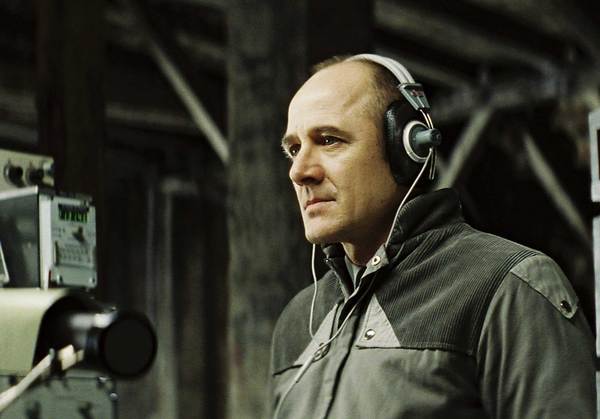
The winner of the Best Foreign Language Film Academy Award, “The Lives of Others” from Germany explores the monitoring of East Berlin residents by agents of the Stasi, the GDR’s secret police. The film stars Ulrich Mühe as Stasi Captain Gerd Wiesler, Ulrich Tukur as his superior Anton Grubitz, Sebastian Koch as the playwright Georg Dreyman, and Martina Gedeck as Dreyman’s lover, a prominent actress named Christa-Maria Sieland.
“The Lives of Others” marked the directorial debut of Florian Henckel von Donnersmarck, and was widely praised all over the world. Released 17 years after the fall of the Berlin Wall, marking the end of the East German socialist state, it was the first noticeable drama film about the subject after a series of comedies such as “Goodbye, Lenin!” and “Sonnenallee”. This approach was widely applauded in Germany, even as some criticized the humanization of Wiesler’s character.
Many former East Germans were stunned by the factual accuracy of the film’s set and atmosphere, accurately portraying a state that merged with West Germany and ceased to exist 16 years prior to the release.
“The Lives of Others” landed appeared on many critics lists for the 10 best films of the year, and won numerous awards in its home country of Germany and around the world. The Europe List, the largest survey on European culture, established the top three films in European culture and “The Lives of Others” placed in the second spot. Its combination of technical skill, beautiful writing and direction, and historical accuracy make “The Lives of Others” one of the best films of 2006.
4. Pan’s Labyrinth
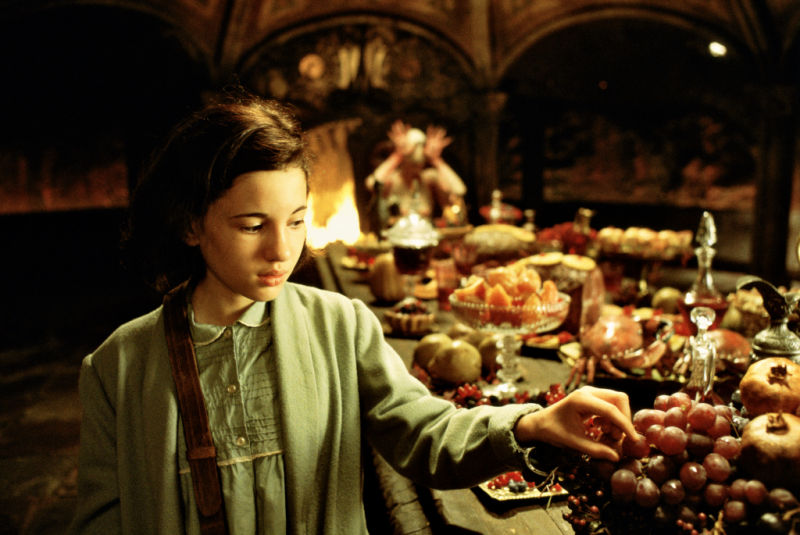
Writer and director Guillermo Del Toro’s masterpiece, “Pan’s Labyrinth”, or originally known in Spanish as “El Laberinto del Fauno (The Labyrinth of the Faun)”, is an award-winning piece of dark fantasy. The story takes place in Spain in May–June 1944, five years after the Spanish Civil War, during the early Francoist period.
The narrative of the film intertwines this real world with a mythical world centered on an overgrown abandoned labyrinth and a mysterious faun creature, with whom the main character, Ofelia, interacts.
Ofelia’s stepfather, the Falangist Captain Vidal, hunts the Spanish Maquis who fight against the Francoist regime in the region, while Ofelia’s pregnant mother grows increasingly ill. Ofelia meets several strange and magical creatures who become central to her story, leading her through the trials of the old labyrinth garden.
“Pan’s Labyrinth” received universal acclaim, receiving a 98/100 score on Metacritics, making it Metacritic’s highest-rated film of the 2000s and the second highest-rated movie of all time.
At its premiere at the Cannes Film Festival, it received a 22-minute standing ovation, one of the longest in the festival’s history. It also received a standing ovation at the 2006 Toronto International Film Festival, its first release in the North America.
The film won three Academy Awards from six nominations, and won for Best Art Direction, Best Cinematography, and Best Makeup. Its mix of dark fantasy, storytelling, and amazing aesthetics, make “Pan’s Labyrinth” one of the best films of 2006.
3. The Prestige
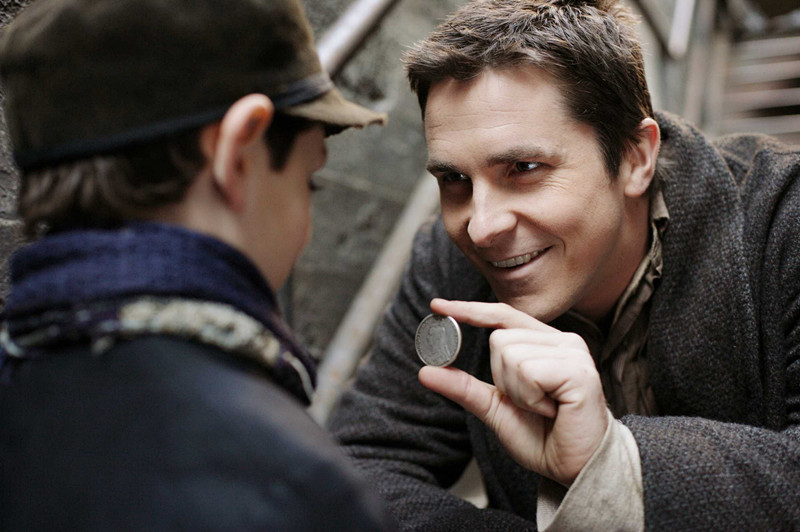
One of three films in the same year to tackle the world of stage magicians, “The Prestige” is the best of the three. Christopher Nolan writes and directs this story that follows Robert Angier and Alfred Borden, who are rival stage magicians in London at the end of the 19th century.
Obsessed with creating the best stage illusion, they engage in competitive one-upmanship with tragic results. The film stars Hugh Jackman as Angier and Christian Bale as Borden, and the late David Bowie as Nikola Tesla.
The cast also includes Michael Caine, Scarlett Johansson, Piper Perabo, Andy Serkis and Rebecca Hall. The film received positive reviews and strong box office results, garnering Academy Award nominations for Best Cinematography and Best Art Direction. Like a lot of Nolan’s work, it is popular with audiences, holding a 8.5/10 audience rating from IMDb, ranking it at 51 on the site.
It is also known as one of the best shot films of the year and decade, making American Cinematographer’s “Best-Shot Film of 1998-2008” list, ranking at 37. Its combination of tricks, shots, and acting make “The Prestige” one of the best films of 2006.
2. The Departed
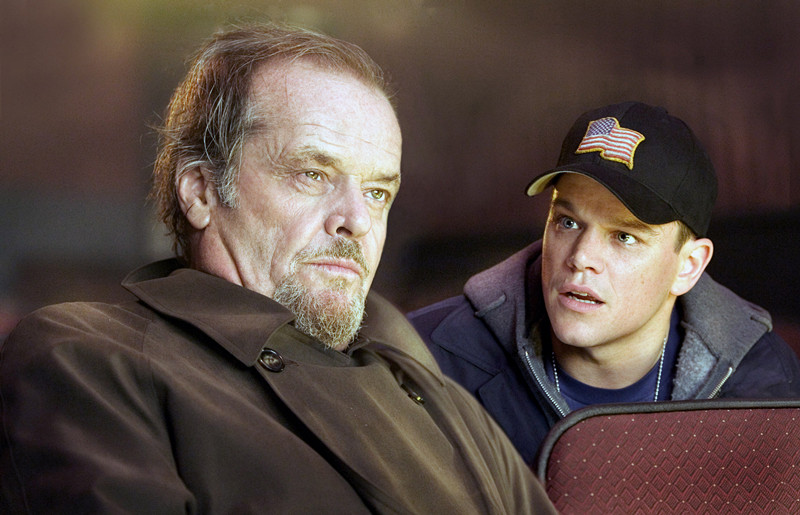
A remake of the 2002 Hong Kong film “Infernal Affairs”, “The Departed” is a star-studded winner of grit and action. Directed by Martin Scorsese and written by William Monahan, the film stars Leonardo DiCaprio, Matt Damon, Jack Nicholson and Mark Wahlberg, with Martin Sheen, Ray Winstone, Vera Farmiga, Anthony Anderson and Alec Baldwin in supporting roles.
A critical and commercial success, “The Departed” won many awards, including four Oscars. These were Best Picture, Best Director (a first for Scorsese), Best Adapted Screenplay, and Best Film Editing. Wahlberg was nominated for Best Supporting Actor.
The film takes place in Boston, where Frank Costello (Jack Nicholson) plants Colin Sullivan (Matt Damon) as a mole within the Massachusetts State Police, while the police assign undercover state trooper William “Billy” Costigan (Leonardo DiCaprio) to infiltrate Costello’s crew. When both sides realize the situation, Sullivan and Costigan each attempt to discover the other’s identity before their own covers are blown.
Released to universal acclaim, “The Departed” was heralded as a masterpiece and many said it deserved to be ranked alongside other Scorsese classics. Many critics placed it on their lists of the best of the year, with several of them placing it at number one. The film’s stellar cast, the quality of the adaptation, and Scorsese actually having a film with a plot make “The Departed” one of the best films of the year.
1. Children of Men
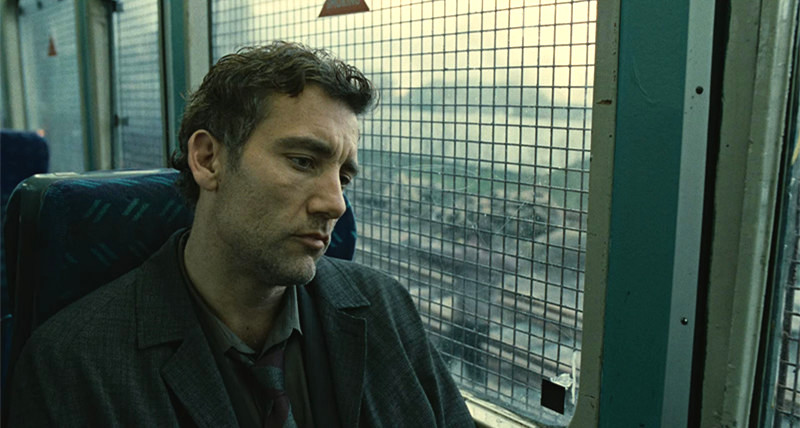
Written and directed by Alfonso Cuaron, “Children of Men” is based off the 1992 novel of the same name. The film takes place in 2027, where two decades of human infertility have left society on the brink of collapse. Illegal immigrants seek sanctuary in the United Kingdom, where the last functioning government imposes oppressive immigration laws on refugees.
Clive Owen stars as civil servant Theo Faron, who must help a refugee (Clare-Hope Ashitey) escape the chaos. “Children of Men” also stars Julianne Moore, Michael Caine, Chiwetel Ejiofor and Charlie Hunnam. It received acclaim for its gripping story, the gorgeous yet bleak cinematography by Emmanuel Lubezki, and its innovative single-shot action sequences.
“Children of Men” was nominated for three Academy Awards; Best Adapted Screenplay, Best Cinematography, and Best Film Editing, but unfortunately it did not win any of them. The film explores themes of hope and faith in the face of futility and despair, and it has specific spiritual and religious references throughout, much like the original novel.
It received a 92 percent approval rating on Rotten Tomatoes and an 84 approval rating from Metacritics, citing universal acclaim. The film also has been a frequent choice on lists that denote the best films of the 2000s, receiving the 11th most votes of any film through the decade. Peter Travers named it his second best film of the 2000s. Its lasting critical acclaim, technical majesty, and approval from original author P.D James makes “Children of Men” one of the best films of 2006.